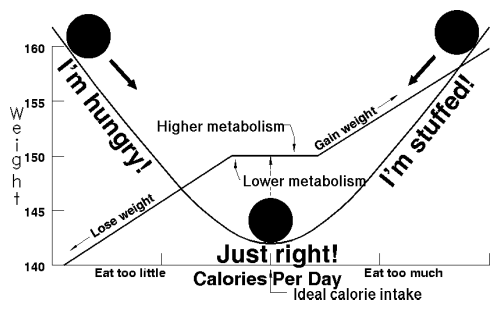
The Calories in Wine
The holidays are a time of year when many of us have to loosen our belt buckles just a bit, attempting to satisfy our expanding waistlines. It's not our fault; the pumpkin pie, the chocolate fudge, and the buttered yams all sit smugly on the dinner table, daring us to take a bite: yes, we are practically being force fed. Even so, the calories still add up, not just one crumb at a time but also one sip at a time.
In moderation or in abundance, the calories of wine can make a difference in weight. Drinking a few servings a day gives you a few hundred more calories, giving you a few more pounds over time. For this reason, it's important to account for the calories consumed whenever you raise your glass.
As a general rule, a glass of wine contains about 80 calories, when the term "glass" is comparable to 4 ounces and not comparable to a 7-11 Big Gulp. Fortified wine is typically higher in calories and wines with higher alcohol content - because alcohol is where the majority of the calories are generated - may pack a better punch, but they will also pack on more pounds. To put this in perspective, the US Department of Agriculture states that 100 grams of wine with a 12.2 alcohol content have roughly 85 calories; 100 grams of wine with a 18.8 alcohol content have 135 calories. The sugar in wine also plays as much a dramatic role as the alcohol; the higher the sugar content, the more calories it will have. For this reason, some dieters prefer to consume dry wines with lower alcohol content.
Even when the above is taken into consideration, many wines contain a similar amount of calories or only differ by a small number. Cabernet Sauvignon, Red Burgundy, White Burgundy, Beaujolais, Chardonnay, Chianti, Merlot, Sauvignon Blanc , Champagne , and White or Red Zinfandel all contain between 90 and 100 calories per serving. To tip the scales, Madeira, Muscatel, Ruby Port , White Port , and Tokay all contain between 160 and 180 calories per serving.
No matter the type of wine consumed, people who drink do run the risk of gaining weight, but the wine itself is not the problem: rubbing the nose of your bottle of Port against your bathroom scale and repeatedly telling it "No" is unwarranted. It's not the consumption of wine that adds pounds, it's the consumption of wine without cutting back on food. Wine, like other liquids, doesn't have the ability to curb our appetite. Thus, many of us start to drink wine without taking into consideration the extra calories and we consume our regular caloric intake through food. When the calories of wine are added to our regular intake, additional calories are consumed. Still, these additional calories are often better for you than additional calories from other alcoholic sources.
When compared to other alcohol, wine has a slight edge. Beer, particularly light beer, may be less caloric than wine, as a 12 ounce light beer typically has 100 calories, but beer doesn't possess the health benefits of wine; it doesn't have the antioxidants. When compared to mixed drinks and straight shots, wine wins bottles down. Mixed drinks, especially when mixed with sugary sodas, and shots of hard alcohol are very caloric and contain no health benefit. They have nothing to offer but calories and they know it, leaving them to sometimes throw themselves down the drain when the bartender is not looking.
Drinking wine doesn't have to equal increased pounds. One way to have your wine and drink it too is to simply adopt physical activity as a means to make up for the additional calories - instead of driving to the bar, walk there; instead of pushing a cart through a liquor store, carry your supplies; instead of drunk dialing your ex-lovers, jog to their house and speak to them. You can also keep from gaining weight by cutting back on the calories consumed through other means - eat less candy during the day; have a banana for a snack instead of a muffin; eat a salad instead of a steak. Adopting a few of these habits will make room for the wine calories you consume. If, for some reason, these habits don't quite work, getting rid of wine is not the answer. Instead, simply remember two little words: liquid diet.
Jennifer Jordan is the senior editor at http://www.savoreachglass.com With a vast knowledge of wine etiquette, she writes articles on everything from how to hold a glass of wine to how to hold your hair back after too many glasses. Ultimately, she writes her articles with the intention that readers will remember wine is fun and each glass of anything fun should always be savored.
No comments:
Post a Comment